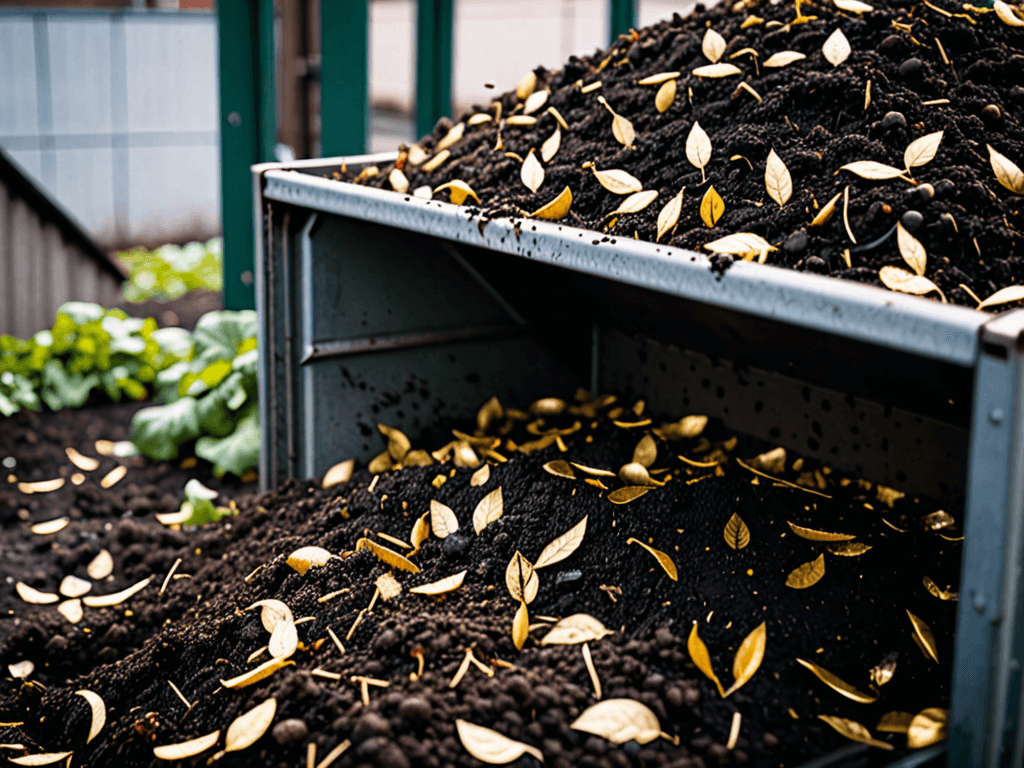Urban composting is changing the way city dwellers manage waste, offering a sustainable solution to reduce landfill usage while enriching the soil.
This eco-friendly approach to composting empowers individuals to transform their kitchen scraps and yard waste into valuable nutrients for plants.
By understanding the what, why, and how of urban composting, you can start making a positive impact within your community.
Let’s delve into everything you need to know about urban composting, from its benefits to the best practices for maintaining a thriving compost bin.
What is Urban Composting?
Urban composting is the practice of turning organic waste like food scraps and yard debris into compost, a nutrient-rich material that enhances soil health. This method is particularly beneficial in densely populated areas where space for traditional waste management is limited.
Urban composting reduces the volume of waste sent to landfills, cutting down on methane emissions, a potent greenhouse gas. It involves the collection of suitable organic matter, such as vegetable peels, coffee grounds, and eggshells, which are then mixed and managed to decompose properly.
Understanding the concept of composting in urban settings allows individuals and communities to contribute to sustainability efforts directly.
Benefits of Urban Composting
Urban composting offers a range of benefits that extend beyond personal satisfaction and environmental responsibility. One of the most significant advantages is the reduction in household waste, which decreases landfill contributions and thus limits harmful emissions.
Composting also enriches the soil, enhancing nutrient levels and encouraging the growth of healthy plants and vegetables. This process leads to less reliance on chemical fertilizers that can have adverse effects on both the environment and human health.
Moreover, by engaging in urban composting, communities can foster a sense of collective responsibility and environmental stewardship, promoting awareness and education around sustainable practices.
Urban composting not only benefits the environment but can also save money by lowering waste disposal costs and improving garden productivity.
Materials Needed for Urban Composting
To start urban composting, you’ll need several key materials that make the process efficient and effective.
A compost bin or a secure container, such as a tumbler or a homemade bin, is essential for containing your composting materials and keeping pests at bay.
You’ll gather ‘green’ materials like fruit and vegetable scraps, coffee grounds, and grass clippings, which provide nitrogen.
Also, include ‘brown’ materials for carbon, such as dried leaves, shredded paper, and small branches.
Together, these materials balance the compost, aiding in decomposition.
Access to water is crucial to maintain the moisture level within your compost, promoting the activities of microbes.
A pitchfork or a sturdy shovel can help in turning the compost, ensuring that oxygen is distributed, which speeds up the breakdown process.
How to Start Composting in Small Spaces
Starting composting in small spaces can be simple and rewarding with the right approach.
Begin by selecting a small, durable compost bin or container that fits your space, like a vertical compost tower, which maximizes your area efficiently.
Make sure it has ventilation holes to allow air circulation.
Choose a spot near your kitchen for ease of access, minimizing the effort in transferring scraps.
Focus on the right balance of greens and browns to ensure your compost breaks down effectively.
Greens include vegetable peels and tea leaves, while browns consist of items like shredded newspaper and dried leaves.
Rotate materials regularly with a small garden fork to aerate the mixture, keeping it moist but never soggy.
This method not only conserves space but also turns waste into a valuable resource for your plants.
Common Challenges in Urban Composting
Urban composting comes with its set of challenges that can be managed with the right strategies.
A common issue is dealing with unpleasant odors, which often result from an imbalance between green and brown materials. It’s crucial to maintain the correct ratio and ensure your compost is aerated.
Pests like fruit flies and rodents can also be attracted if food waste isn’t covered properly. Using a lid or mesh and burying food scraps beneath other compost materials can help.
Moisture control is another challenge; too much water leads to soggy compost, while too little can halt decomposition. Checking the moisture regularly and adjusting as necessary helps maintain the compost’s health.
In addition, space constraints in urban environments require creative solutions, such as vertical or compact bins.
Proper maintenance and vigilance are key to overcoming these hurdles.
DIY Urban Composting Bins
Creating your own DIY urban composting bin can be an economical and satisfying project. Start with a large storage bin or barrel that can hold at least 20 gallons of compost. Drill ventilation holes around the sides and bottom to ensure proper airflow, which is crucial for decomposition. Use a tight lid to prevent pests and manage odors.
For a more aesthetic option, consider using wooden pallets to build a compost frame. This method not only repurposes materials but also blends well with garden environments. Ensure there is a spacious area for turning the compost, which can be managed using a garden fork.
Building a DIY composting bin provides full control over size and design, allowing customization to fit any urban space and recycling needs.
How to Maintain a Healthy Compost
Maintaining a healthy compost requires regular attention and a few simple practices. Ensure the right balance of greens and browns; this provides the necessary nitrogen and carbon.
Keep your compost pile moist like a damp sponge but avoid waterlogging; too much moisture slows down decomposition.
Regularly turning the compost with a pitchfork or shovel aerates the pile, accelerating the breakdown process by introducing oxygen.
Also, monitor the temperature, which should be warm to touch in the center, indicating active microbial decomposition.
Keep out items like meat and dairy that attract pests and could create unpleasant smells.
By following these tips, your compost will thrive, transforming waste into nutrient-rich material.
Impact of Urban Composting on Community
Urban composting significantly benefits communities by reducing waste sent to landfills, which helps decrease greenhouse gas emissions.
This practice fosters a sense of environmental responsibility and community involvement, as residents collectively work towards a sustainable future.
Community gardens thrive with the nutrient-rich compost produced, contributing to local food production and improving access to fresh produce.
Education and workshops on composting can boost local awareness and participation, creating a ripple effect of environmentally conscious behavior.
Moreover, the aesthetics and health of urban areas improve with less trash and more green spaces.
Embracing Urban Composting for a Sustainable Future
Urban composting is an impactful practice that transforms waste into a valuable resource, reflecting our commitment to sustainability.
By addressing common challenges and equipping individuals with the knowledge to maintain healthy compost, communities can thrive with greener spaces and reduced waste.
The continued growth of community participation and educational initiatives strengthens the collective effort to foster environmental stewardship.
Ultimately, urban composting not only improves individual and communal living environments but also supports a global movement towards eco-friendly urban development.
FAQ – Frequently Asked Questions about Urban Composting
What is urban composting and why is it important?
Urban composting is the process of recycling organic waste in city settings to reduce landfill waste and enrich soil.
What materials can I compost in an urban setup?
You can compost fruit and vegetable scraps, coffee grounds, eggshells, dried leaves, and shredded paper without anything that attracts pests.
How can I start composting in a small apartment?
Use a small compost bin or a vertical compost tower with sufficient ventilation and maintain the right balance of greens and browns.
How do I prevent odors and pests in my compost bin?
Ensure proper ventilation, cover food scraps, and maintain a balanced, well-aerated compost pile.
Why is my compost not decomposing properly?
Check the moisture level, balance of materials, and ensure regular aeration by turning the pile.
How does urban composting benefit the community?
It reduces landfill waste, lowers emissions, supports community gardens, and fosters environmental education and engagement.
Can I compost in cold weather?
Yes, but decomposition slows down. Insulating the bin and maintaining material balance helps keep the process going.


